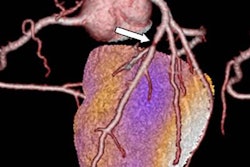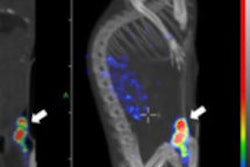Dear AuntMinnie Member,
As we go to press, the outcome that everyone in radiology has feared -- a trade war between the U.S. and China -- has broken out, with the U.S. slapping 25% tariffs on Chinese products, and China retaliating with import duties of its own.
Medical imaging has found itself in the unenviable position of being a pawn in a battle between two heavyweight fighters. CT, MRI, ultrasound, and other types of scanners are on a list of 800 products that the Trump administration has targeted with tariffs. The duties could affect scanners manufactured entirely in China and imported into the U.S., as well as subsystems made overseas and shipped to the U.S. for integration into complete systems.
It's not totally clear how the tariffs will affect the prices of capital medical equipment. Imaging industry groups have warned that the tariffs could cost the industry billions of dollars, affect future R&D, and impede patient access to innovation.
More ominously, the tariffs could result in major increases in the U.S. in the cost of capital medical equipment -- in a sector that's extremely sensitive to price. As a result, many hospitals could postpone scanner purchases until cooler heads prevail and the tariffs are eliminated. As little data have been published on the volume of scanner imports into the U.S. from China, it's hard to come up with an estimate of the impact the trade war will have.
The only sure thing is that the ripple effects of the U.S.-China trade war will continue to radiate throughout radiology. Hopefully, they won't grow into waves large enough to capsize the industry. Read our article by clicking here, and check back for more updates as the story develops.
Molybdenum woes
In other news, the nuclear medicine community in Australia is in the grips of a shortage of technetium-99m, a widely used radioisotope for nuclear medicine studies. A mechanical problem at a nuclear reactor that produces molybdenum-99, a precursor to technetium-99m, has forced a shutdown in shipments of technetium generators to hospitals.
The country is getting backup supplies of technetium generators from the U.S., but even these have been interrupted. More shipments are scheduled for next week, when the situation will hopefully stabilize.
The shutdown highlights the precarious nature of the global supply network for technetium, which relies on a handful of nuclear reactors around the globe that are frequently offline for mechanical and maintenance issues. Read our story by clicking here.
Risk-based breast screening
Finally, be sure to visit our Women's Imaging Community for a new article that asks the question, what would happen if breast screening were based on a woman's risk of breast cancer rather than her age?
It's become an increasingly common question, so researchers from the U.K. analyzed several different screening scenarios based on different levels of risk. Not surprisingly, they found that restricting screening to higher-risk women saved money and produced fewer cases of overdiagnosis.
But risk-based screening also prevented fewer deaths from breast cancer -- 10% fewer, in fact. So the question then is, who gets to decide what's an acceptable trade-off between lives saved and costs? Read more by clicking here, or visit our Women's Imaging Community at women.auntminnie.com.




















